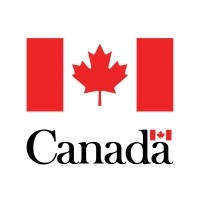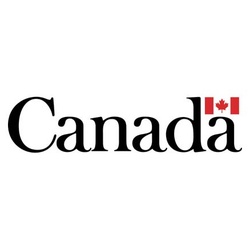
Nature Smart Climate Solutions Fund
At a glance
- Minimum amount : 75,000 $
- Open Date : April 1, 2025
- Agriculture, forestry, fishing and hunting
- Canada
- Non-profit
- Public or Parapublic institution
- For-profit business
- Sole proprietorship
- All revenue ranges
- 500 employees maximum
- Indigenous Peoples
- Canadians
- Research
- Environment
- Economic, Social and Community Development
- Diversity and Inclusion
- General public
- Indigenous peoples
- Rural / Remote communities
- Nonprofits / charities
- Academia / students
- Community leaders
- All structures
- Local
- Municipal
- Regional
- Provincial
- National
- International
Overview
Submit a proposal to carry out nature-based solutions to conserve, sustainably manage, and restore ecosystems.
Activities funded
The eligible projects for this grant involve implementing natural climate solutions to curb greenhouse gas emissions through prevention of ecosystem conversion, improved management, and restoration efforts. These initiatives are targeted to support Canada’s 2030 Emissions Reduction Plan and contribute positively to biodiversity and human well-being.
- Avoiding conversion projects that reduce the area of ecosystems converted annually to other land uses by halting activities that lead to GHG emissions.
- Improved management projects focusing on maintaining the current land use while adopting management practices that lead to additional emission reductions.
- Restoration projects aimed at increasing the area of ecosystems restored to enhance their capacity for carbon sequestration and storage by 2050.
Eligibility
The eligibility for this grant is defined by the potential applicant types and their affiliation.
- Organizations, both national and international, that are non-profit, including charities and non-governmental organizations (NGOs).
- Indigenous organizations, administrations, individuals, boards, commissions, communities, associations, and authorities, which include:
- Non-profit Indigenous organizations;
- District councils, chiefs councils, and tribal councils;
- Indigenous research, teaching, and educational institutions;
- For-profit Indigenous organizations.
- All levels of government, including provincial, territorial, municipal, and local governments and their agencies (e.g. Crown Corporations).
- Research, teaching, and academic institutions that are national or international.
- Individual Canadian citizens.
- For-profit organizations, national or international, such as small businesses with fewer than 500 employees, corporations, and industry associations.
- Local organizations, including associations, community groups, senior groups, youth groups, and philanthropic clubs.
Who is eligible?
This grant is open to a wide range of applicants interested in projects designed to reduce greenhouse gas emissions through nature-based climate solutions. Eligible applicants include organizations and individuals from various sectors, as follows:
- National and international non-profit organizations, such as charities, volunteer groups, professional associations, and NGOs.
- Indigenous organizations and authorities, including non-profit and for-profit entities, councils, boards, and educational institutions.
- Provincial, territorial, municipal, and local governments and their agencies, including Crown corporations.
- National and international research, teaching, and educational institutions.
- Canadian individuals.
- National or international for-profit organizations, including small businesses with fewer than 500 employees, corporations, and industrial associations.
- Local organizations, such as community associations, senior and youth groups, and philanthropic clubs.
Who is not eligible
The grant is designed to support projects that align with Canada's emissions reduction plan and stipulates certain requirements and restrictions on applicants. However, no specific types of companies or industries have been explicitly excluded from applying based on their status or main activity within the provided context.
Eligible expenses
- Costs associated with projects that reduce the loss, restore, or improve the management of ecosystems
- Expenses related to halting or reducing the conversion of carbon-rich ecosystems to less carbon-rich ecosystems
- Costs for restoring carbon storage and biodiversity in converted or degraded ecosystems
- Expenses for reducing GHG emissions caused by natural resource use through implementing new forest harvesting management practices
- Costs related to developing policies, programs, or tools with key actors in priority sectors to reduce GHG emissions and improve biodiversity
- Costs for measuring and reporting on GHG outcomes from natural climate solutions
- Expenses associated with providing biodiversity and human well-being co-benefits
- Costs related to advancing science and knowledge on natural climate solutions in Canada
Eligible geographic areas
This grant is available for projects within Canadian provinces and territories. The funding is aimed at ensuring alignment with regional climate goals.
- Projects located within the provinces of Canada.
- Projects situated in the territories of Canada.
Selection criteria
The evaluation and selection of projects for this grant are based on specific criteria to ensure effective emission reduction and project execution.
- Expertise and capacity of the team to manage the project.
- Clarity and detail in the project description, work plan, and budget.
- Reasonable project timeline and budget.
- Support from key concerned partners.
- Likelihood of the project generating concrete, additional, and sustainable/permanent emission reductions by 2030 and extending to at least 2050.
How to apply
Reach Out to Regional Office
- Contact your regional office of the Canadian Wildlife Service (CWS) using the provided contact details.
- Request access to the application documents and discuss your project idea if necessary.
Prepare Documentation
- Complete the Application Form and the Supplementary Information Workbook.
- Gather all relevant support documents required for submission.
Submit Application
- Send the completed application and accompanying documents to the regional CWS office.
- Ensure all materials are complete as only full applications will be reviewed.
Await Confirmation
- Wait for confirmation that your application is considered complete and under review.
- If additional information is required, revise and resubmit the application as guided by feedback.
Additional information
Here are additional relevant details for this grant:
- The application process is ongoing until funds are exhausted for the fiscal year 2025-26, which means early submissions have a potential advantage.
- The funding provided can range from a minimum of $75,000 to a maximum of $50 million, emphasizing the wide range of project scales supported.
- For projects involving Indigenous applicants, encouraging but not requiring matching funds acknowledges the diverse financial contexts.
- Applicants must not only demonstrate a project's potential in reducing emissions but also handling biodiversity, Indigenous reconciliation, and human well-being co-benefits, highlighting a holistic approach to environmental solutions.
- Projects have to demonstrate and provide evidence for a 1:1 matching fund from non-federal sources to be favorably evaluated, pointing to a preference for collaborative funding structures.
Contacts
Frequently Asked Questions about the Nature Smart Climate Solutions Fund Program
What is the Nature Smart Climate Solutions Fund?
How much funding can be received?
What expenses are eligible under Nature Smart Climate Solutions Fund?
What is the deadline to apply?
Is the Nature Smart Climate Solutions Fund a grant, loan, or tax credit?
Who are the financial supporters of the Nature Smart Climate Solutions Fund?
Who is eligible for the Nature Smart Climate Solutions Fund program?
Who can I contact for more information about the Nature Smart Climate Solutions Fund?
Where is the Nature Smart Climate Solutions Fund available?
Are Indigenous Peoples eligible for the Nature Smart Climate Solutions Fund program?
More programs like this

Farm Equipment Financing
Farm Credit Canada (FCC)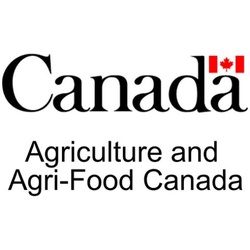
AgriAssurance Program – National Industry Association Component
Agriculture and Agri-Food Canada (AAFC)
AgriInnovate Program
Agriculture and Agri-Food Canada (AAFC)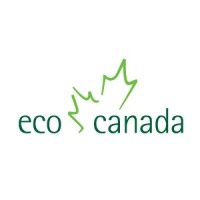
ECO Canada — Youth Employment in Natural Resources YNR
ECO Canada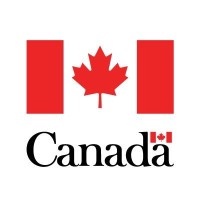
Forest Innovation Program
Natural Resources Canada (NRCan)
Indigenous Forestry Initiative
Natural Resources Canada (NRCan)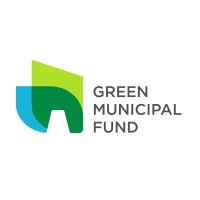
Tree planting
Green Municipal Fund (GMF)
AgriInvest
Agriculture and Agri-Food Canada (AAFC)
Technology Access Centres (TAC)
Tech-Access Canada (TAC)